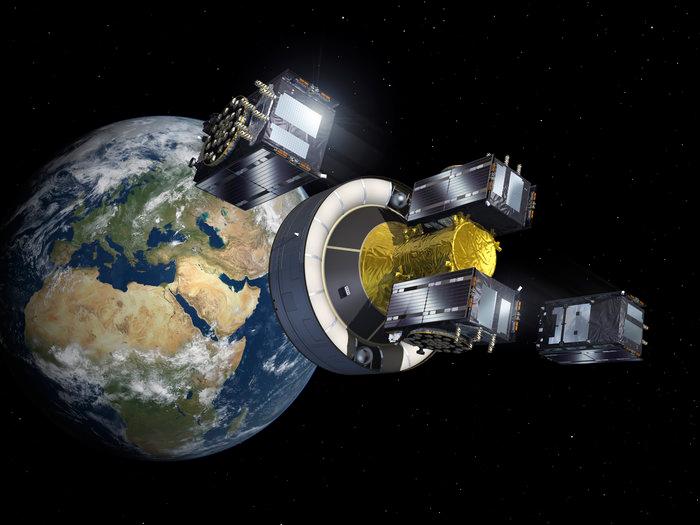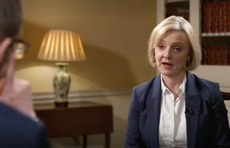UK lags behind Italy as ‘third-rank’ space power, MPs warn
‘Unacceptable’ lack of progress on alternative to EU’s Galileo project after Brexit, says committee

Your support helps us to tell the story
From reproductive rights to climate change to Big Tech, The Independent is on the ground when the story is developing. Whether it's investigating the financials of Elon Musk's pro-Trump PAC or producing our latest documentary, 'The A Word', which shines a light on the American women fighting for reproductive rights, we know how important it is to parse out the facts from the messaging.
At such a critical moment in US history, we need reporters on the ground. Your donation allows us to keep sending journalists to speak to both sides of the story.
The Independent is trusted by Americans across the entire political spectrum. And unlike many other quality news outlets, we choose not to lock Americans out of our reporting and analysis with paywalls. We believe quality journalism should be available to everyone, paid for by those who can afford it.
Your support makes all the difference.The UK has become a “third-rank” power in space and now lags behind Italy after failing to develop an effective programme after Brexit, a cross-party group of MPs have warned.
The defence select committee said there was an “unacceptable” lack of progress in developing a 21st-century satellite navigation system after Britain left the EU’s Galileo project.
The government’s approach to security in space “lacks coherence, clarity and direction”, said the committee following an inquiry on the issue – calling for a dedicated minister for space.
Senior Tory MP Tobias Ellwood, chair of the committee, said Russia’s invasion of Ukraine had thrown the idea of space as a defence domain “into sharp relief”.
Earlier this year, Russia forced British company OneWeb to cancel planned rocket launches in Kazakhstan, controlled by Russia’s space agency and seized the London-based company’s satellites.
Mr Ellwood said: “In the years to come, shoring up our space capabilities will prove vital to the defence and security of the nation. Over this inquiry we heard that the UK is, at best, a third-rank space power, lagging behind Italy.”
In 2018, Theresa May’s government pulled the plug on a partnership with Brussels over the EU’s Galileo system, despite having invested £1.2bn in the scheme designed to boost the bloc’s satellite navigation powers.
In 2020, Boris Johnson’s government launched the Space Based Position, Navigation and Timing Programme (SBPP) as an alternative to the EU project.
Mr Ellwood said the UK project “has disappeared into the ether” and Britain now risks “falling further behind both our peers and our adversaries”, adding: “The lack of progress is unacceptable.”
The defence committee voiced concern about Russia’s impounding of OneWeb satellites, calling for the government to conduct the “strictest possible scrutiny” of the planned merger of OneWeb and Eutelsat.
The cross-party group’s report Defence Space, published Wednesday, also called for more “accountability” in civil and defence spending on space.
“Over the next decade the Ministry of Defence will spend £1.4bn on developing new space capabilities,” the committee chair said.
Mr Ellwood added: “Given the department’s woeful track record in delivering major projects on time and to budget, we have serious concerns that history will be repeated and we will continue to hold the department to account.”
The Independent has contacted the government for comment.



Join our commenting forum
Join thought-provoking conversations, follow other Independent readers and see their replies
Comments